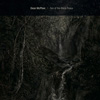Dean McPhee, "Son of the Black Peace"
 This English guitarist's first full-length is just as impressive as last year's excellent Brown Bear EP, but displays quite a significant and somewhat unexpected evolution.  Rather than playing up the psychedelic touches and constant sense of motion that made his earlier work immediately gratifying, Dean has taken the more difficult and distinctive road of shifting his emphasis more strongly towards space and decay.  Thankfully, his melodies are usually strong enough to support that potentially perilous decision.  As a result, Son of the Black Peace is as much a bold artistic statement as it is a great album.
This English guitarist's first full-length is just as impressive as last year's excellent Brown Bear EP, but displays quite a significant and somewhat unexpected evolution.  Rather than playing up the psychedelic touches and constant sense of motion that made his earlier work immediately gratifying, Dean has taken the more difficult and distinctive road of shifting his emphasis more strongly towards space and decay.  Thankfully, his melodies are usually strong enough to support that potentially perilous decision.  As a result, Son of the Black Peace is as much a bold artistic statement as it is a great album.
The one thing that most fascinates me about Dean McPhee is that his style is so difficult to deconstruct: he isn't doing anything ostentatious or overtly experimental, but there is no clear chain of influences leading to his sound.  There are definitely some subtle nods to Takoma Records, jazz, and contemporary pedal-stomping experimentalists, but Dean seems to built upon their tactics rather than their content.These four songs sound like traditional folk-inspired steel-string instrumentals that have been electrified, softened, slowed down, blurred, and improvised into something new.
McPhee is quite adept at weaving strong melodic motifs, as he proves with both the opening harmonic reverie in "Power of Nines" and the Eastern-inspired central riff of "Golden Bridge," but the true depth of his artistry is a bit deeper and less immediately apparent.  Dean wields his battery of pedals in a remarkably nuanced and ingenious way, using delay and chorusing to keep notes hanging and shimmering in the air like a fog.  That nimbus of gently quivering decay holds the pieces together (kind of like drone music) and eliminates the need to stay busy or play a lot of notes just to keep the songs' momentum going: Dean is clearly trying to bring as much sensitivity and feeling to his notes as possible.  He wants them to matter.
Well, perhaps not quite all the time, as another great facet of this album is that almost everything McPhee does is essentially a fantasia on a theme.  The basic framework of these pieces is often merely a jumping-off point for endless variations and improvisations.  That tendency could be quite tedious in the wrong hands, but Dean has a knack for deftly and unexpectedly locking back into the melody in a tight and oft-striking way.  At times, I wish he would stick a bit closer to the song's core (particularly when there is an especially likable melody), but I still enjoyed the low-level tension of wondering how he is going to pull things back together.  He even managed to surprise me a bit near the end of "Cloud Forest," as he wields feedback in a way that weirdly approximates a singing saw (while still maintaining a skeletal chord progression, no less).
Notably, this album was recorded in single takes with absolutely no overdubbing (apparently in a single afternoon, even), yet it sounds like the end result of a lengthy and painstaking process of distillation.  In fact, Son of the Black Peace feels like such a product of restless and exacting perfectionism that it seems like it only could have been recorded in this fashion–it needs  that organic, spontaneous feel as a counterbalance to make it all work (which it certainly does).  Some of McPhee's artistic decisions (increasingly abstract divergences, fewer attention-grabbing "set pieces," etc.) make this album a bit less immediately accessible than its predecessor, but it is worth the effort to get past that.  I'm admittedly a little concerned about how dangerously close Dean is to crossing the line between "refreshingly reflective and understated" and "languidly meandering," but he is staying on the right side pretty damn consistently at the moment (it helps that he keeps his releases somewhat brief though).  If it finds its way to enough ears, this masterful and subtly mesmerizing effort should quietly ensconce McPhee in the upper echelon of contemporary solo guitarists (which is exactly where he belongs).
Samples:
 




